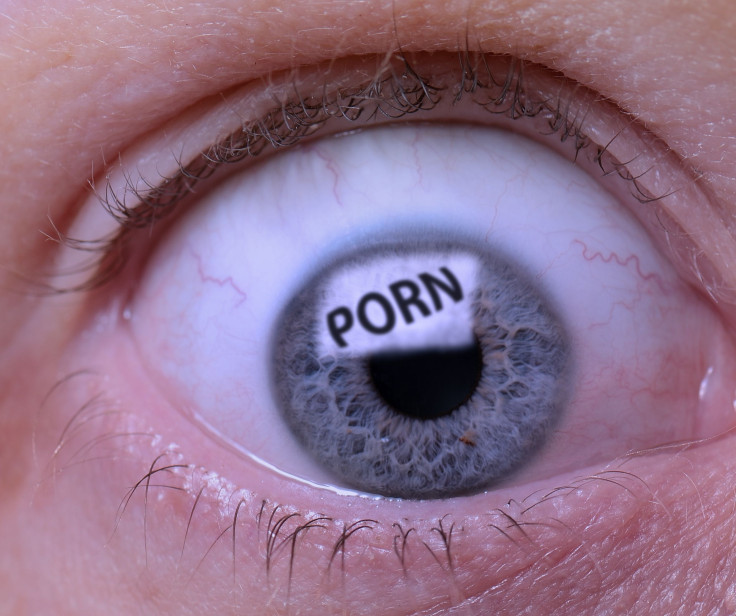Romance Novels, Internet Porn Cause False Expectations In The Bedroom; When Fantasy Becomes Unhealthy

Men and women differ remarkably in what they consider sexually desirable, both in quality and physicality. And when they can't find what they want in the real world, many of them fill that void with the fantasies of internet pornography and in the pages of romance novels.
Biological theories that have emerged throughout our history, such as natural selection, have given us a better understanding of our evolution during the last 1.8 million years. Each gender’s sexual behaviors are a tug-of-war between finding security with a mate and wanting to explore sexual desires. Out of this, marriage was created to maintain control between a husband and wife and the endless competition. Yet, the search continues, if not in reality, then online or in the pages of a book. For both men and women, however, they’re an unnatural fulfillment of each respective fantasy, which can lead to a damaged reality.
Men’s Proclivity For Visual Stimulation
Pornography, a $10 billion to $14 billion industry, accounts for 25 percent of all search engine requests and is the fourth top reason why people go on the internet. It affects human sexual behavior because much of what’s available today doesn’t represent natural human behavior when it comes to mating — one of our two basic primal urges.
Humans’ two innate desires have always been to procreate and find food and water. Everything from grooming habits to climbing the corporate ladder go back to our need to attract a mate or ensure a meal at the end of the day, whether we realize it or not.
Porn, however, has molded sexual tendencies and preferences from years of people looking at it in magazines and watching it. Frequent porn users eventually begin to believe these images, and expect them to materialize in real life. Such a juxtaposition, between these overstimulating images and the reality of sex, can make life seem boring and ultimately affect the way they behave in the bedroom — as well as their partner.
This happens because of the way porn is processed in the brain. Each time a person watches it, dopamine — a neurotransmitter in the brain’s pleasure and reward center — is released. Continued viewing is often compared to addiction because of this, and it can lead to increased compulsiveness, loss of control, and withdrawal symptoms. But most importantly, it increases tolerance as connectivity throughout the brain’s neurons are altered. A constant supply of dopamine reinforces the behavior and leads to a biological feedback loop that always makes that tolerance for visual stimulation higher.
These biological effects then go on to affect the man’s social life. It can cause them to experience more frequent incidences of premature ejaculation or prolonged orgasms, and even increase their chances of cheating. Fortunately, turning it off can reverse the damage. Overstimulated neural connections can rebuild a tolerance, similar to the way muscles are exercised.
Women Develop Unrealistic Expectations
Romance novels are arguably just as effective as porn at degrading life’s reality. This particular book genre, itself worth $1.3 billion, affects women’s sexual ideations in a similar way. For a woman, the pages unfold to create heightened expectations about real life, as she compares her own romances' sexual encounters to those created by the author.
An example of this is Fifty Shades of Grey, one the most popular romance novels of our time. The erotica trilogy sold more than 100 million copies worldwide and became one of the bestselling series in any genre throughout publishing history. But while Internet porn and sexually explicit movies elicit their own dangerous proclivity, books offer readers something more exploratory, as it’s based in their own imaginations. Romance novels can actually cause women to make poor health and relationship decisions, British relationship psychologist Dr. Susan Quilliam, based out of Cambridge, told Live Science.
"They offer an idealized version of romance, which can make some women feel bad about themselves because their relationships aren't perfect," Quilliam said. “Nobody — man or woman, romance reader or non-romance reader — should be making their decisions based on an idealized version of romance."
Raising Young Sexual Beings
In an editorial for Live Science, Drs. Andrew Adesman and Alexis Tchaconas of Cohen Children’s Medical Center wrote that Fifty Shades of Grey, in both book and film form, could be detrimental to teens’ sexual development — even though the film was rated R, millions of 17-year-old high school students fled to theaters for its premiere. While adolescence is a time for sexual curiosity and discovery, the novel revolves around the sadomasochism of bondage. Teens may turn what the book defines as sexy into their own reality, which can lead to abnormal and potentially harmful early sexual experiences.
Teenagers, just like their adult counterparts, may also develop warped attitudes toward sex. A 2012 study, for example, found that early exposure to sexual content in movies predicted the likeliness of teenagers engaging in risky of sexual behavior. Another 2009 study found adolescents who visited sexually explicit websites were also more likely to engage in risky sexual behavior, including having sex with multiple partners and being under the influence of drugs during sex.
A recent study, published in the journal Current Opinion in Pediatrics, claimed that the past 20 years of technological advancement have brought with them a “dark side” as well, with implications for physical, psychological, developmental, and emotional health. Whether it’s porn or erotic romance novels, getting rid of these fantasies might be the only way to return to sexual normalcy.



























